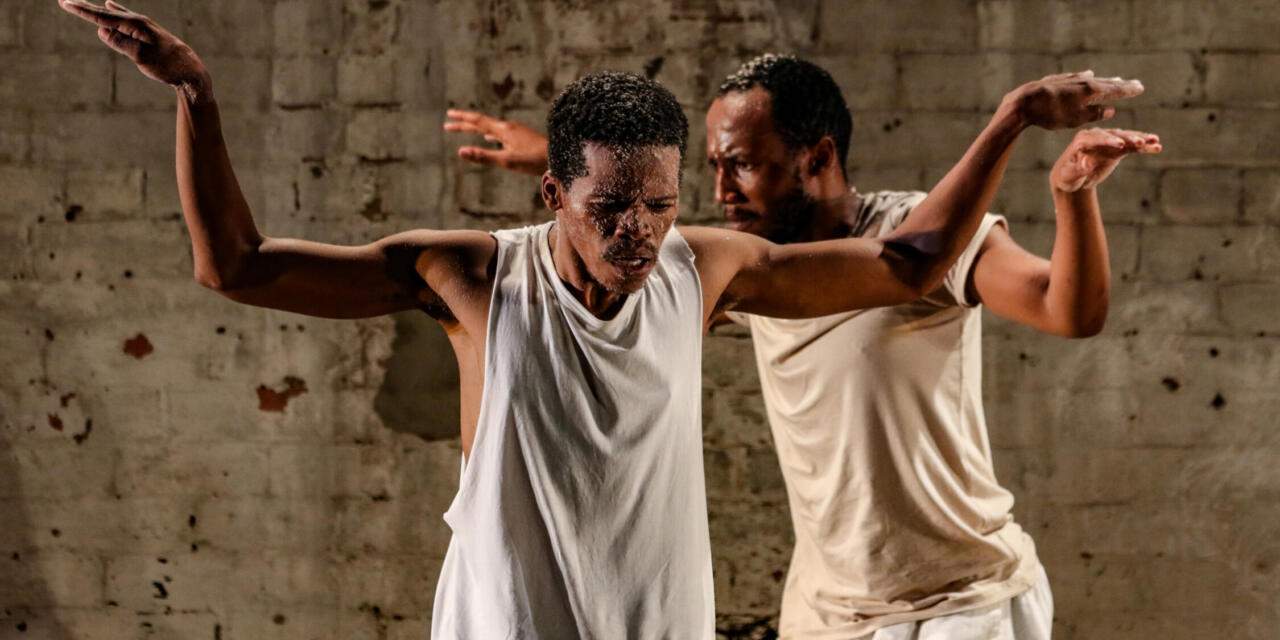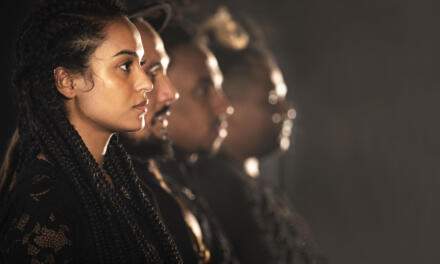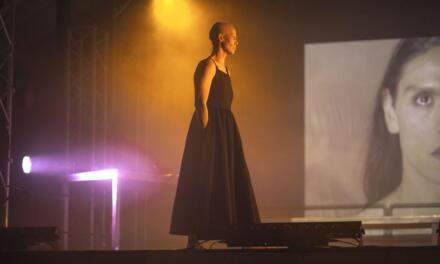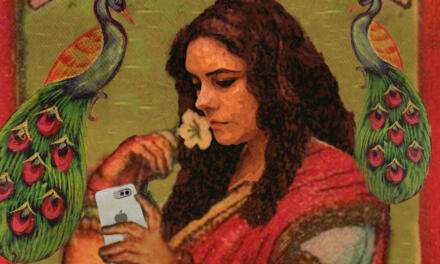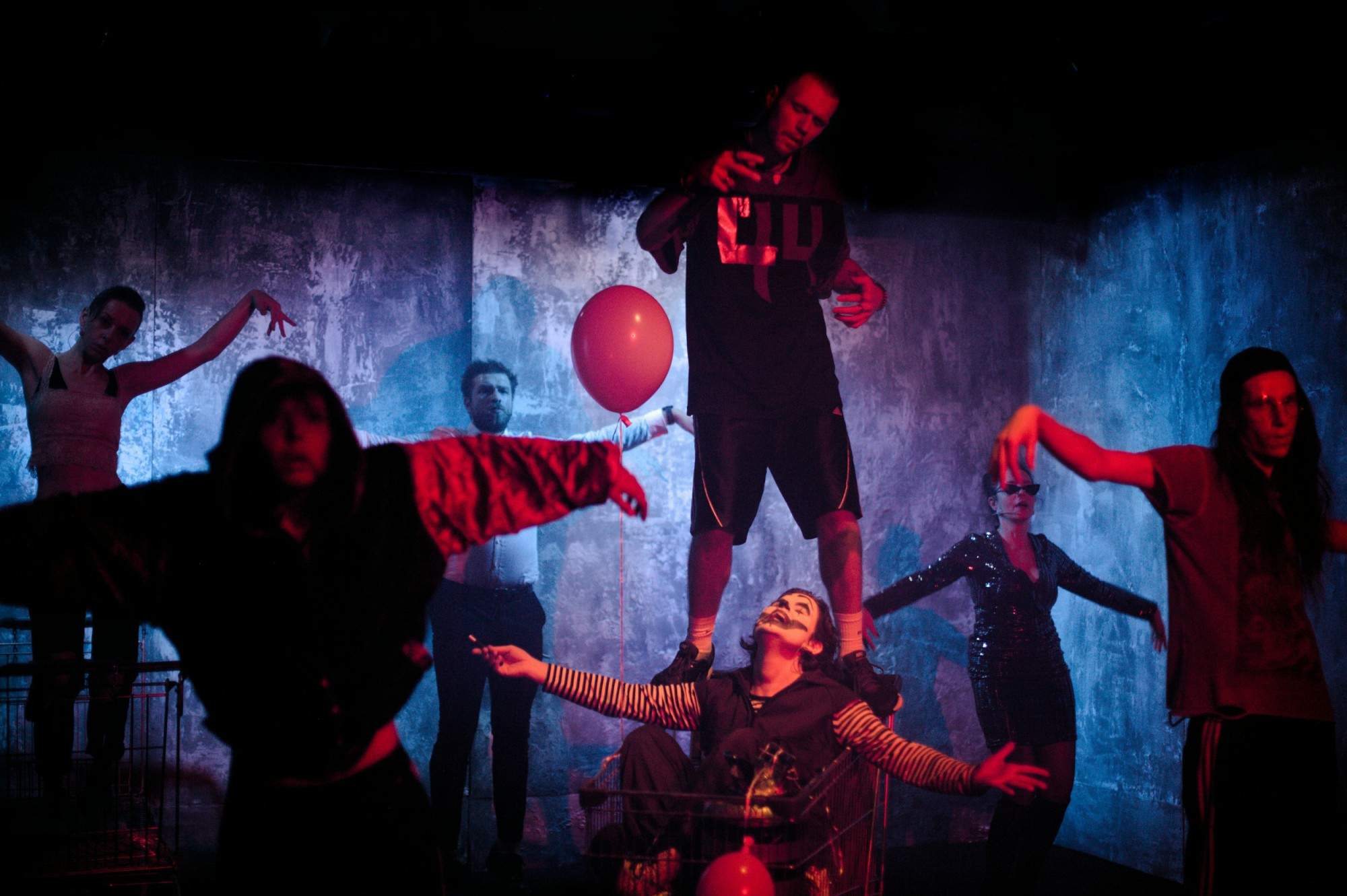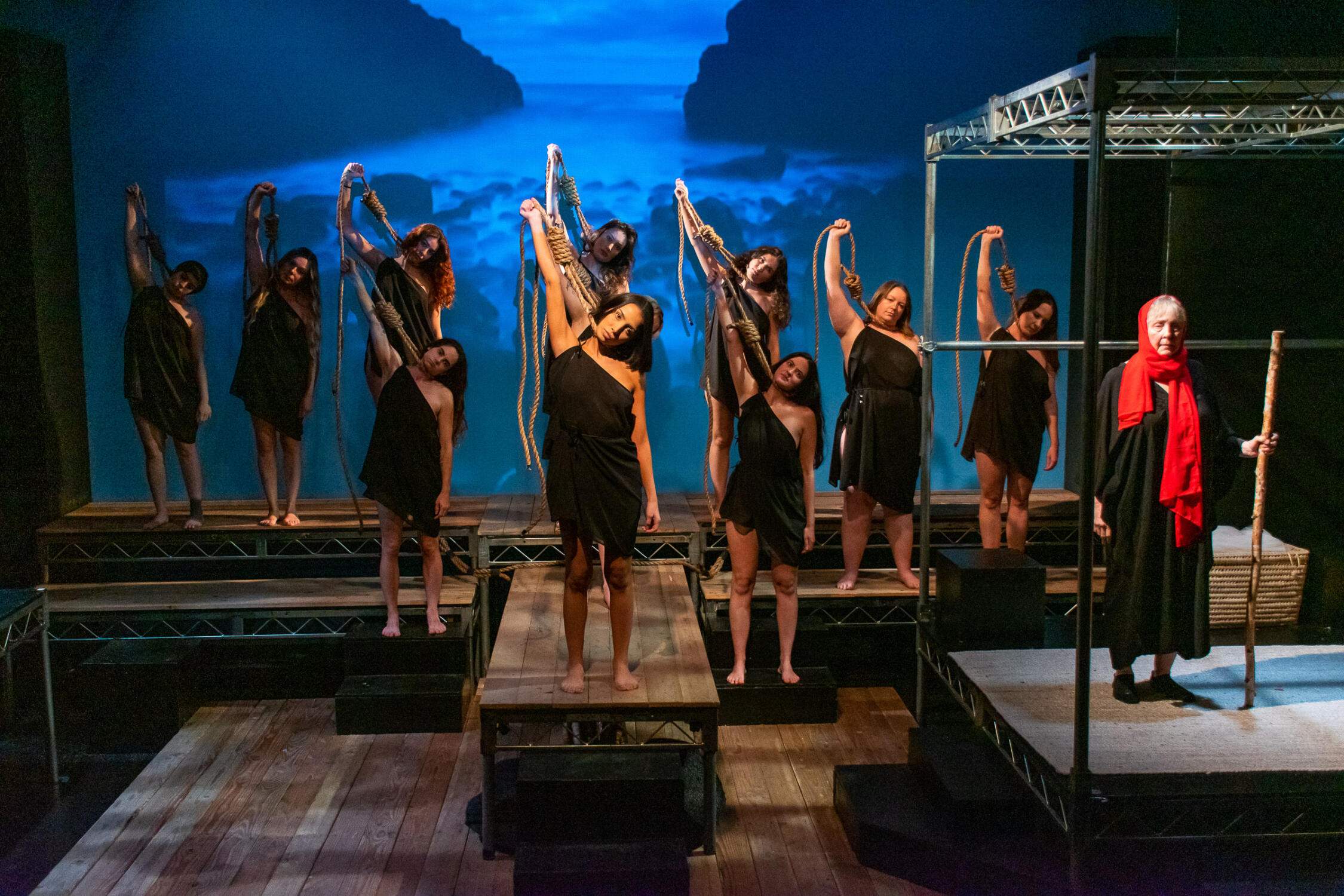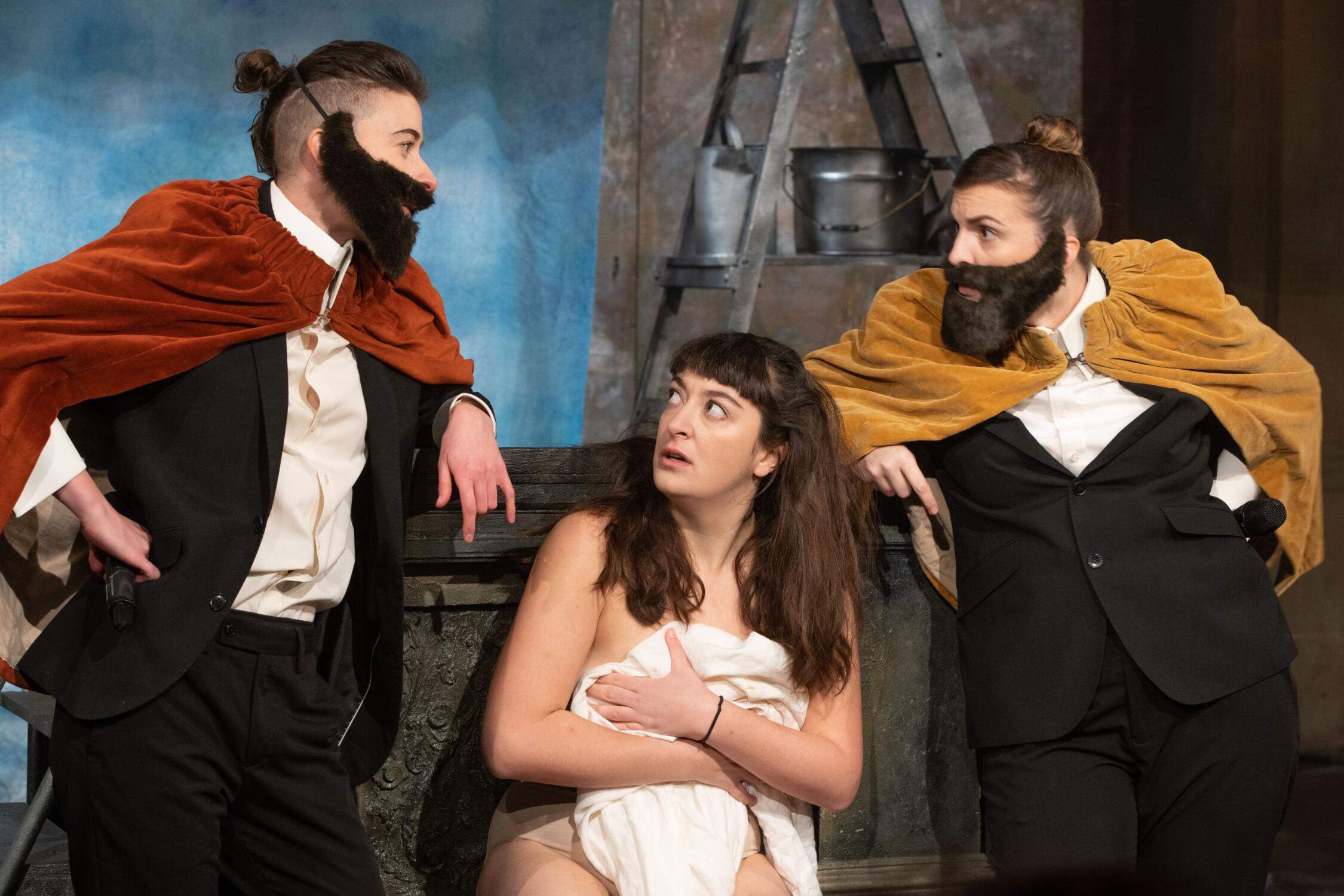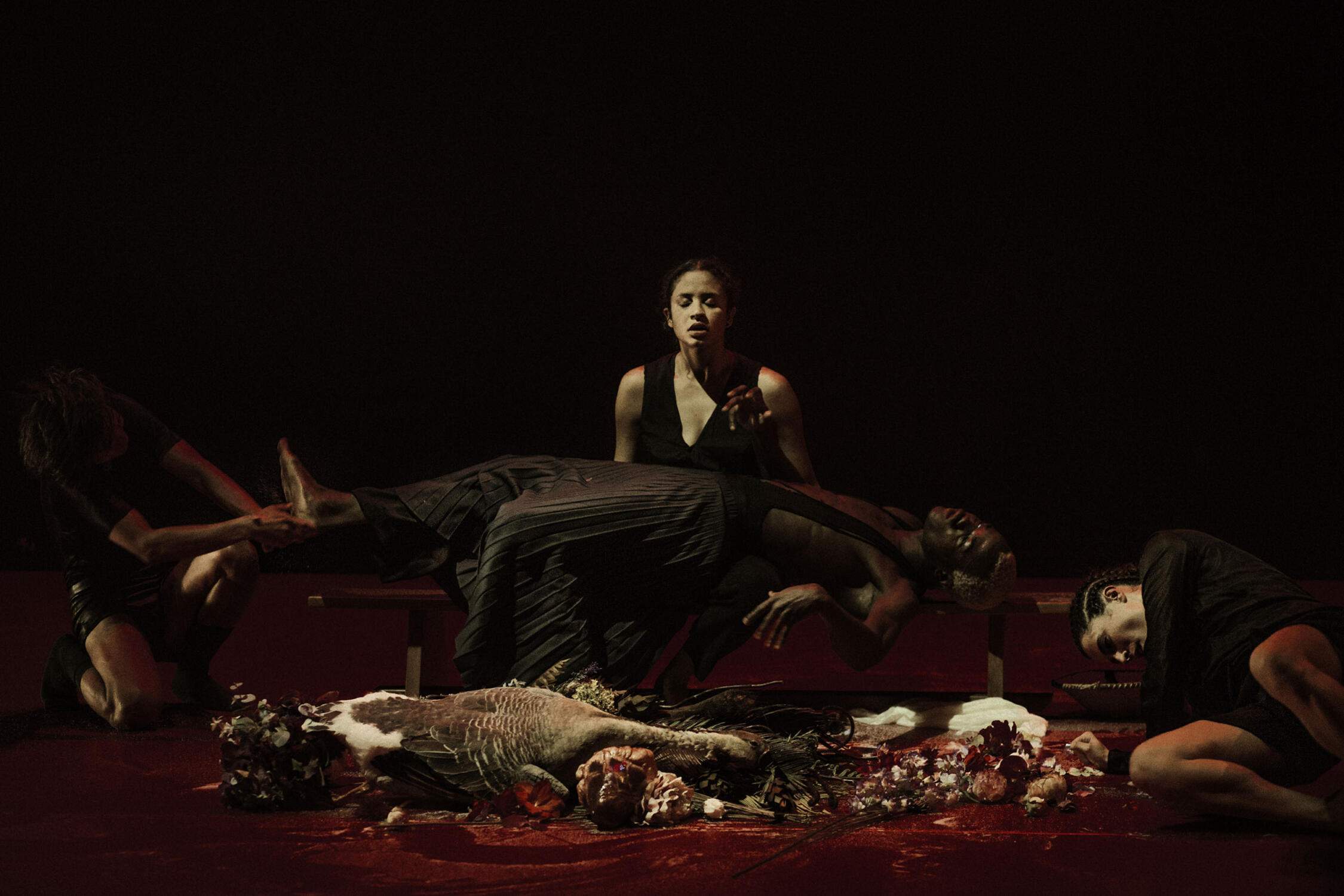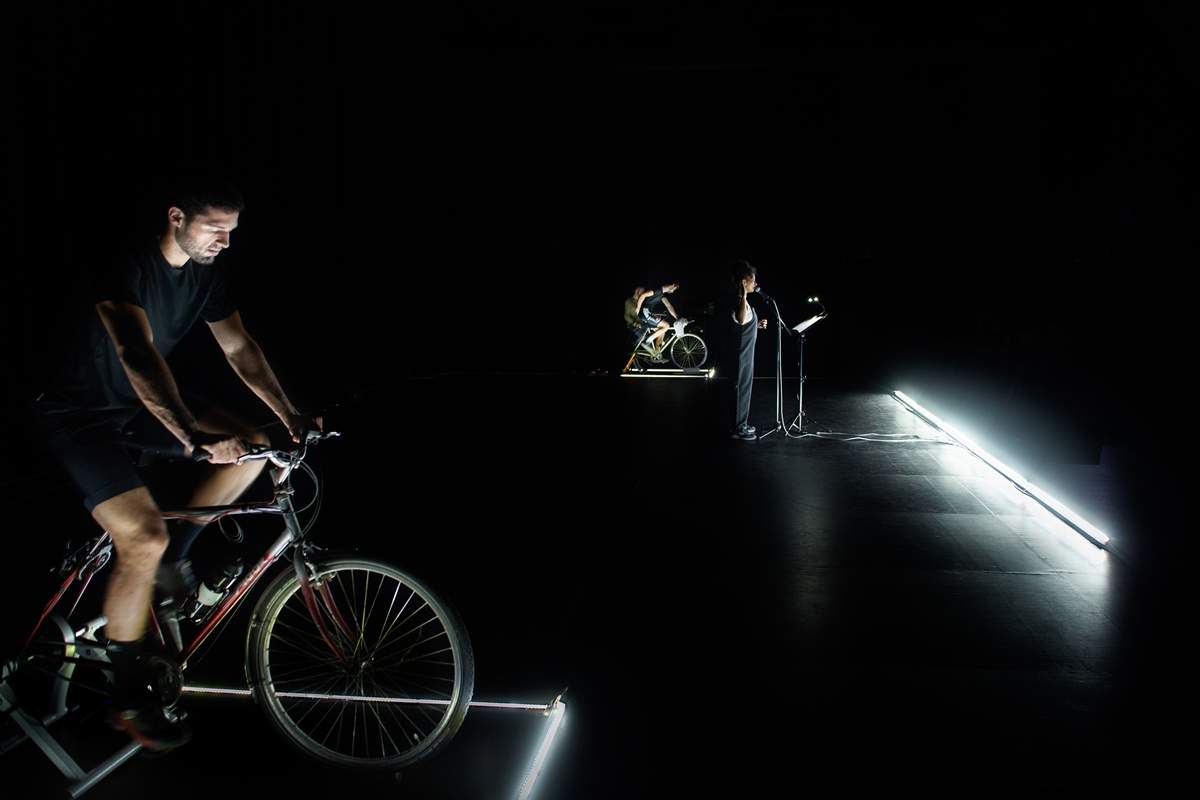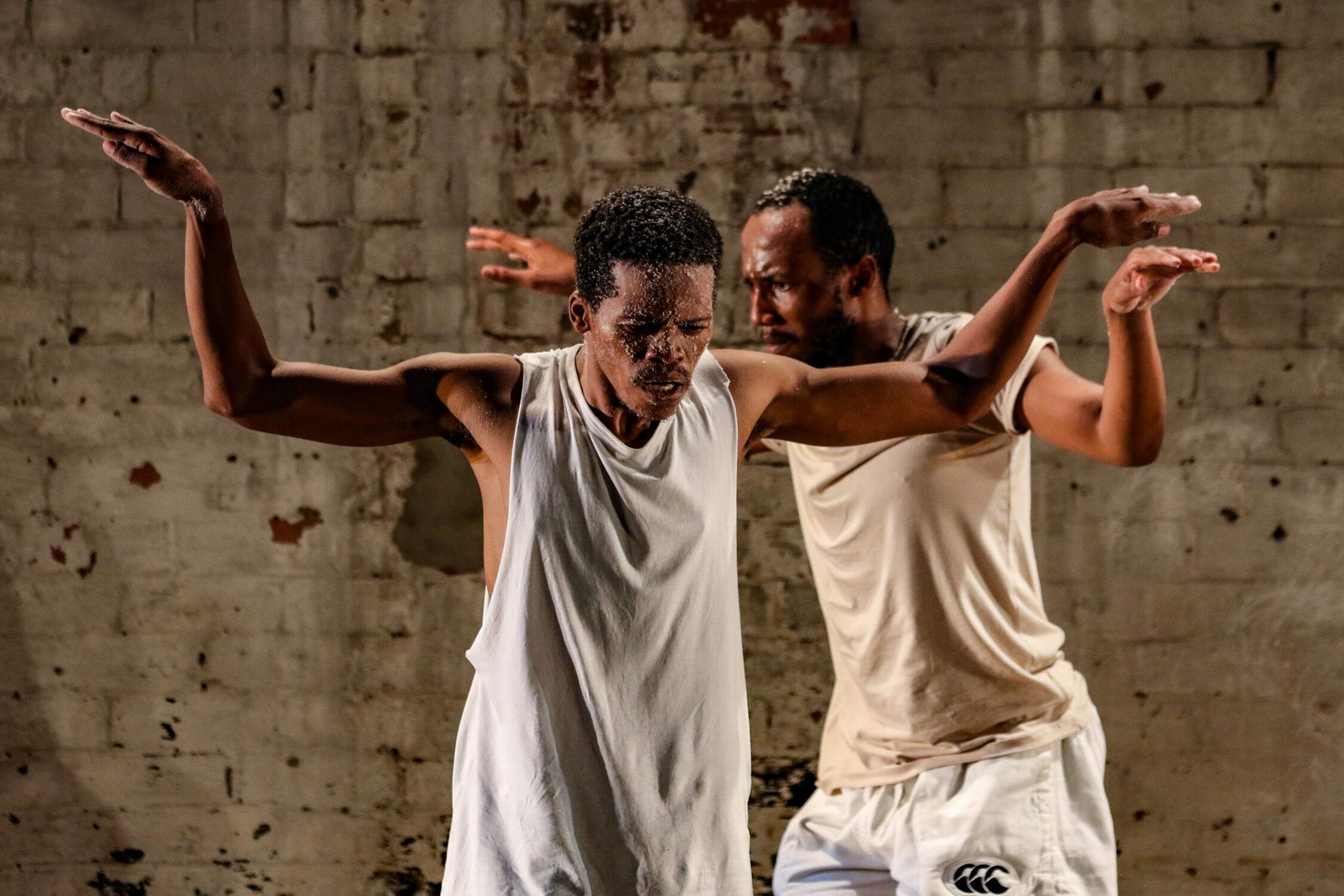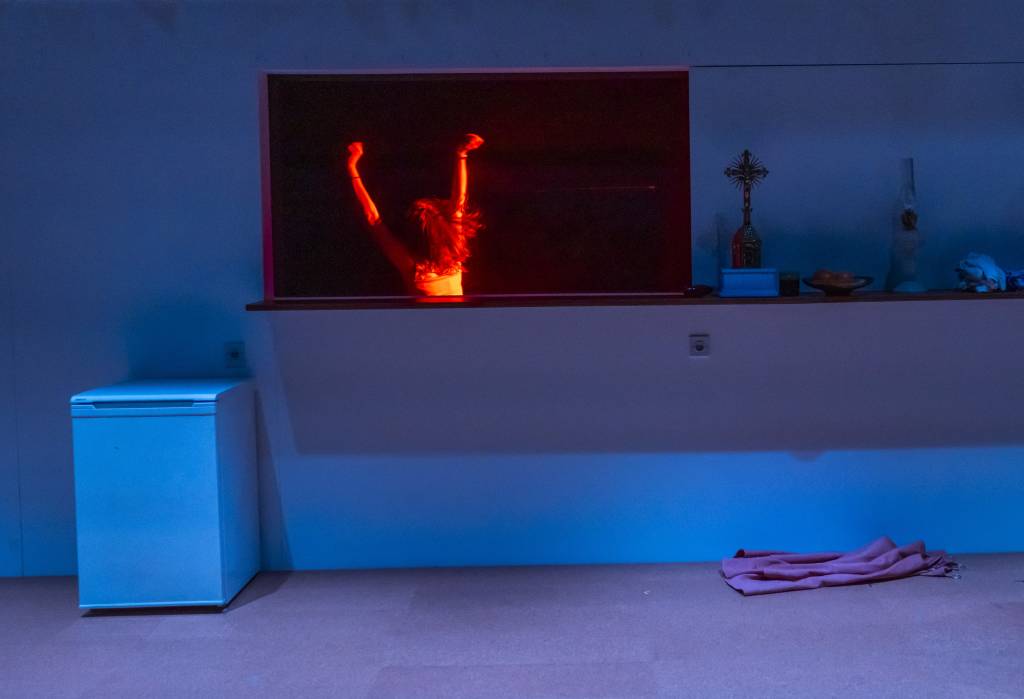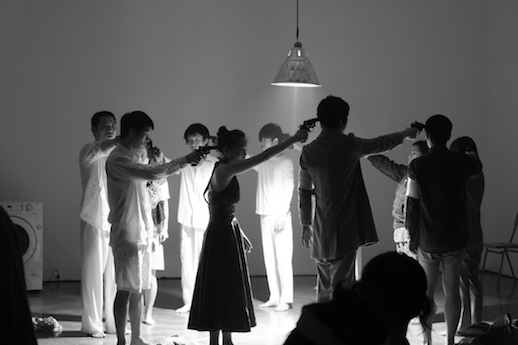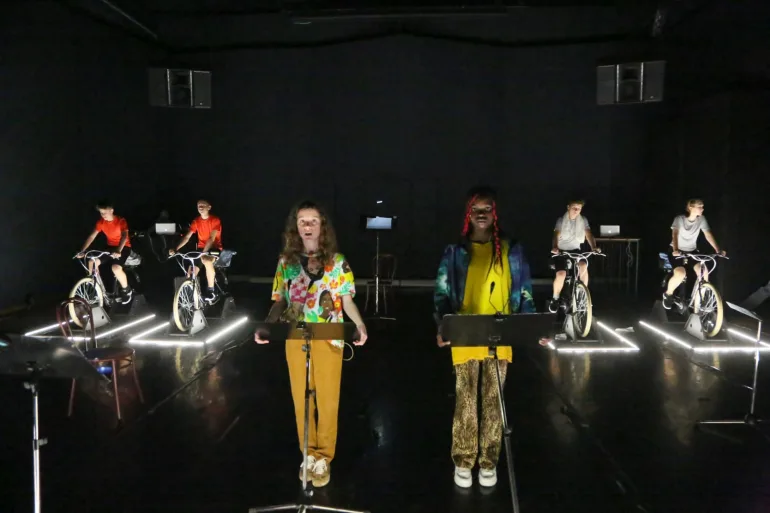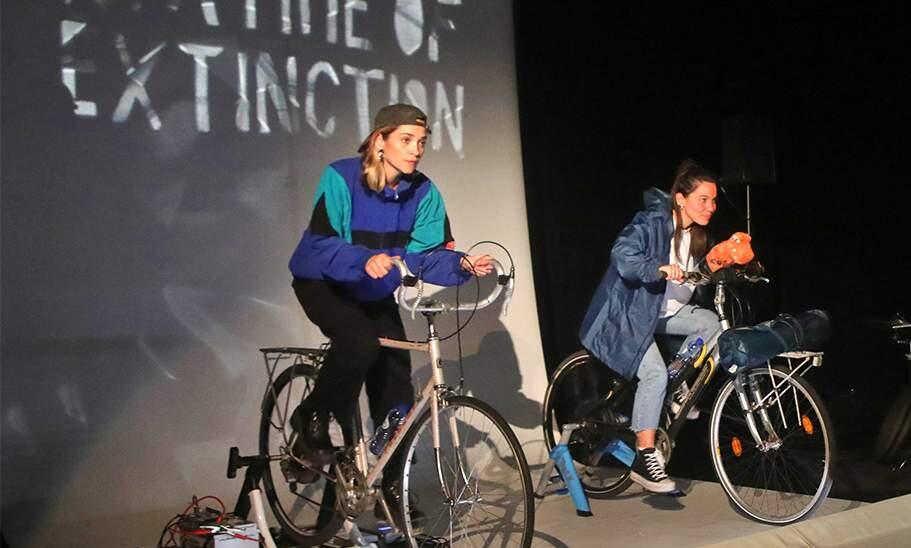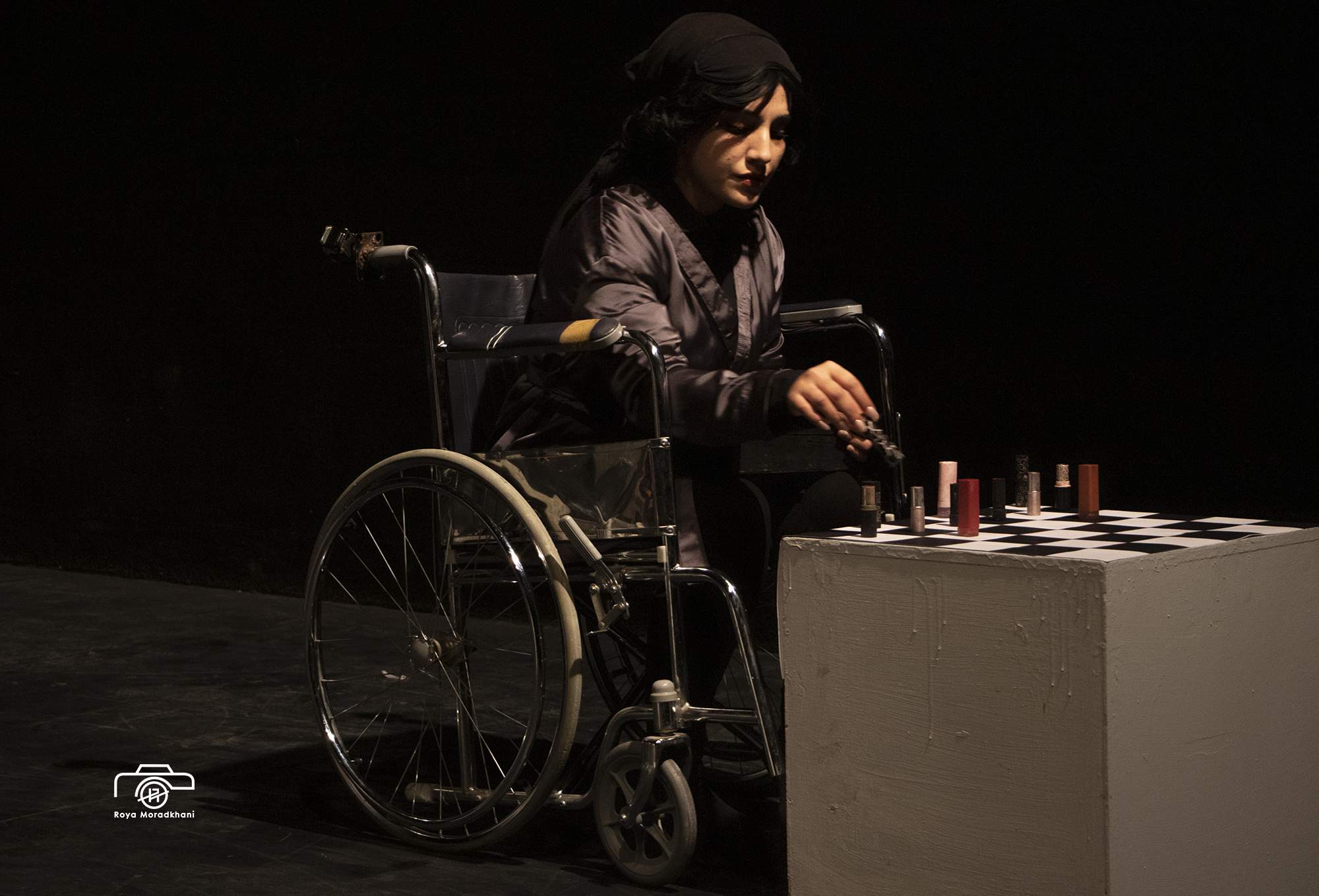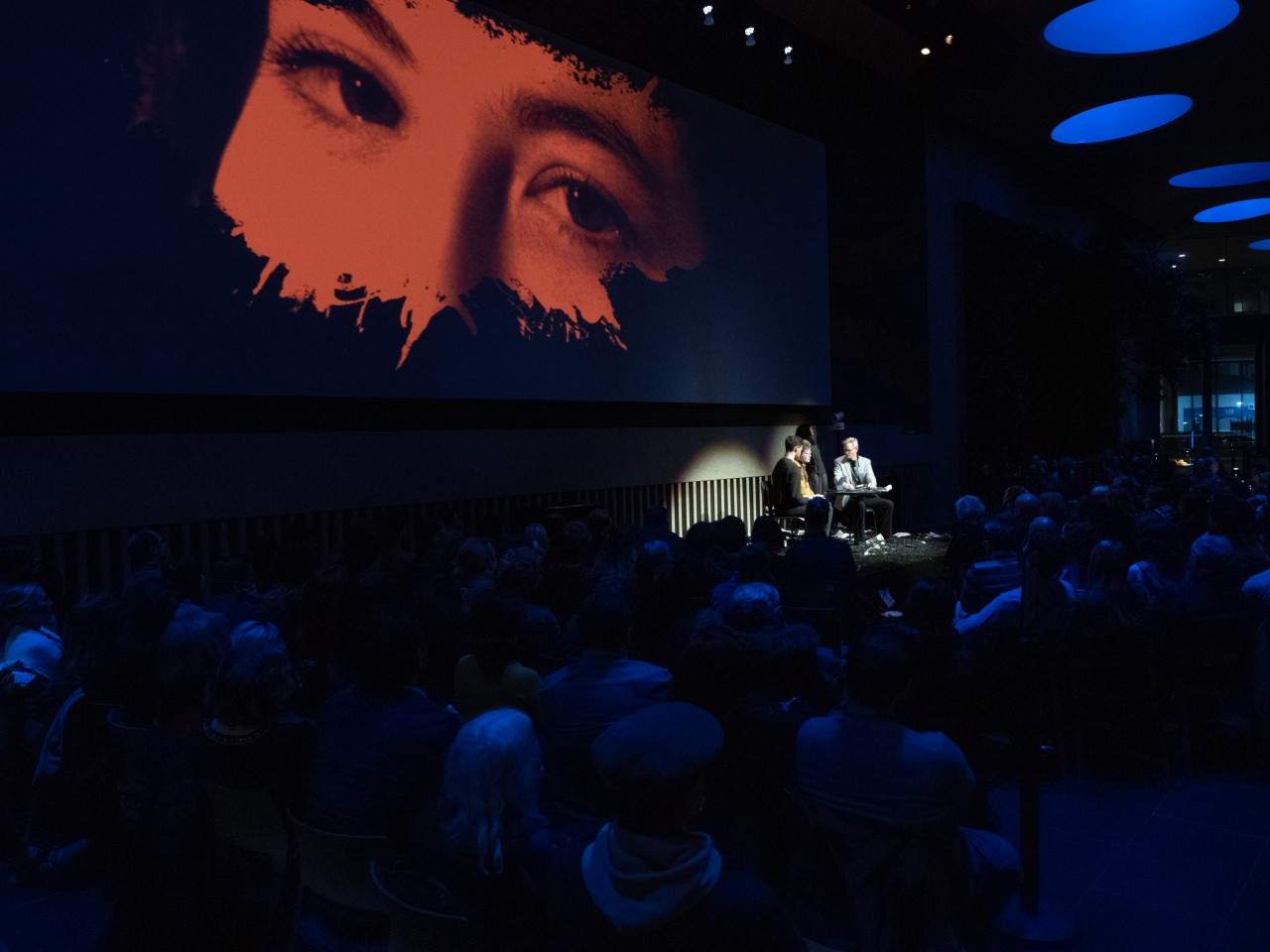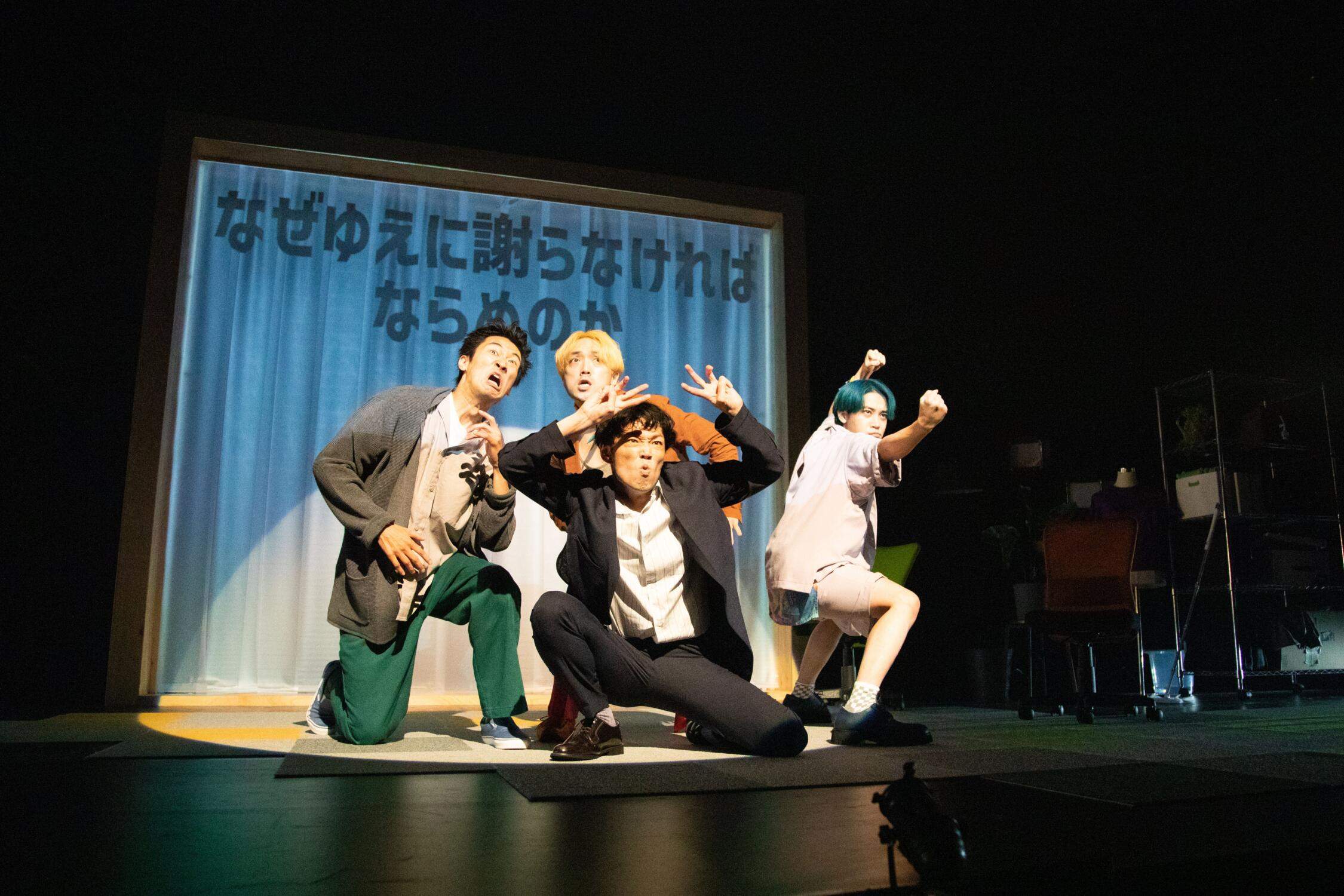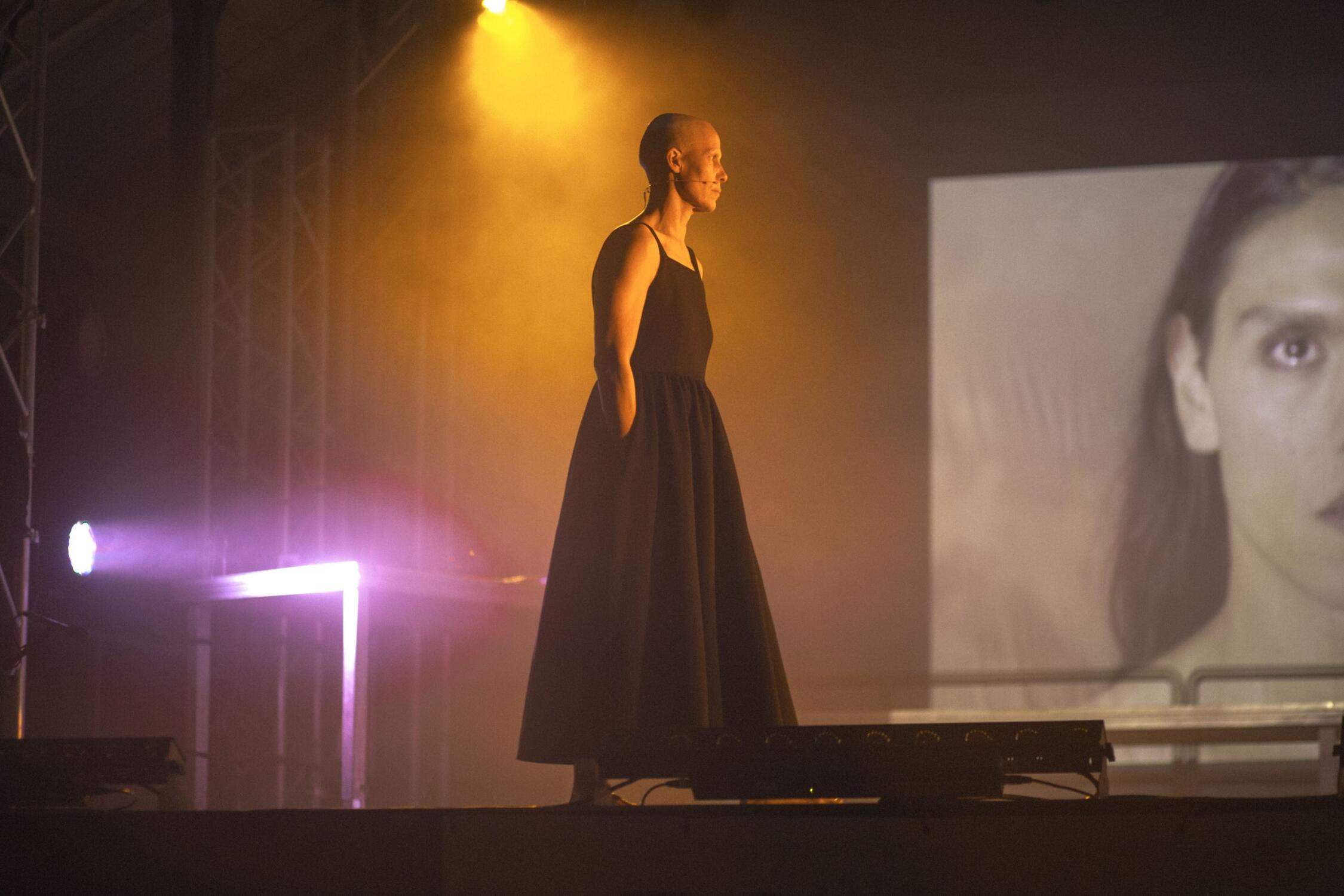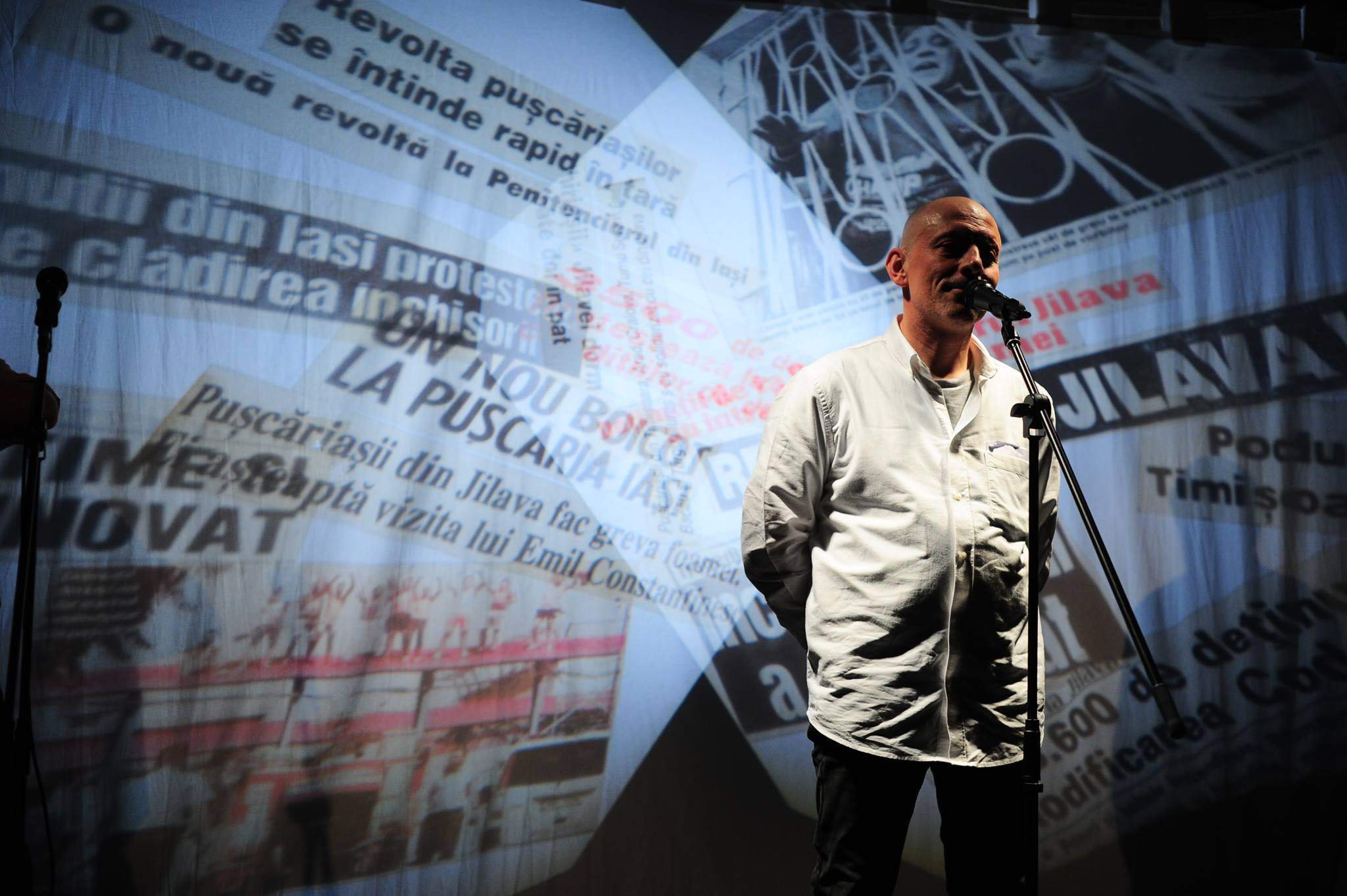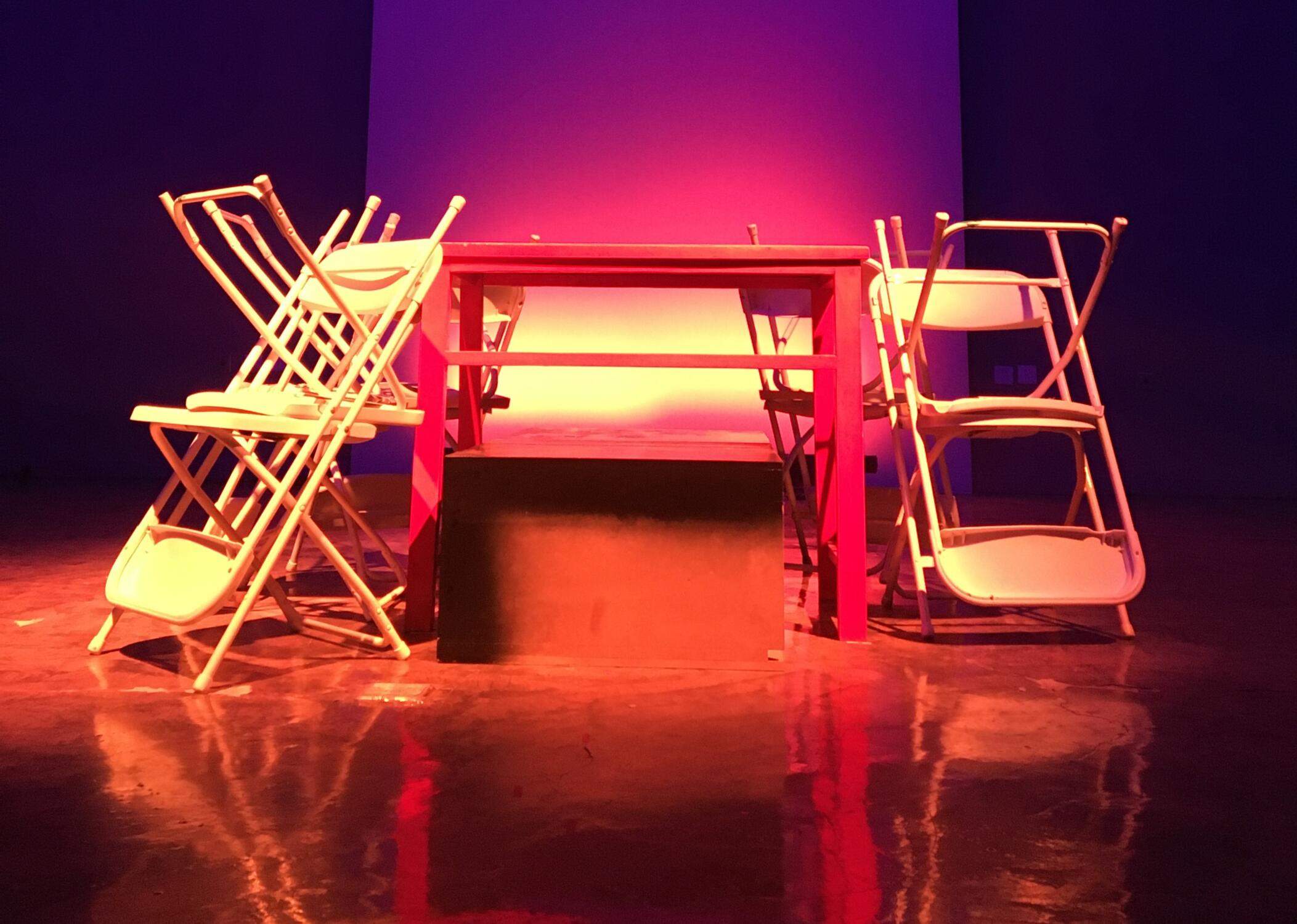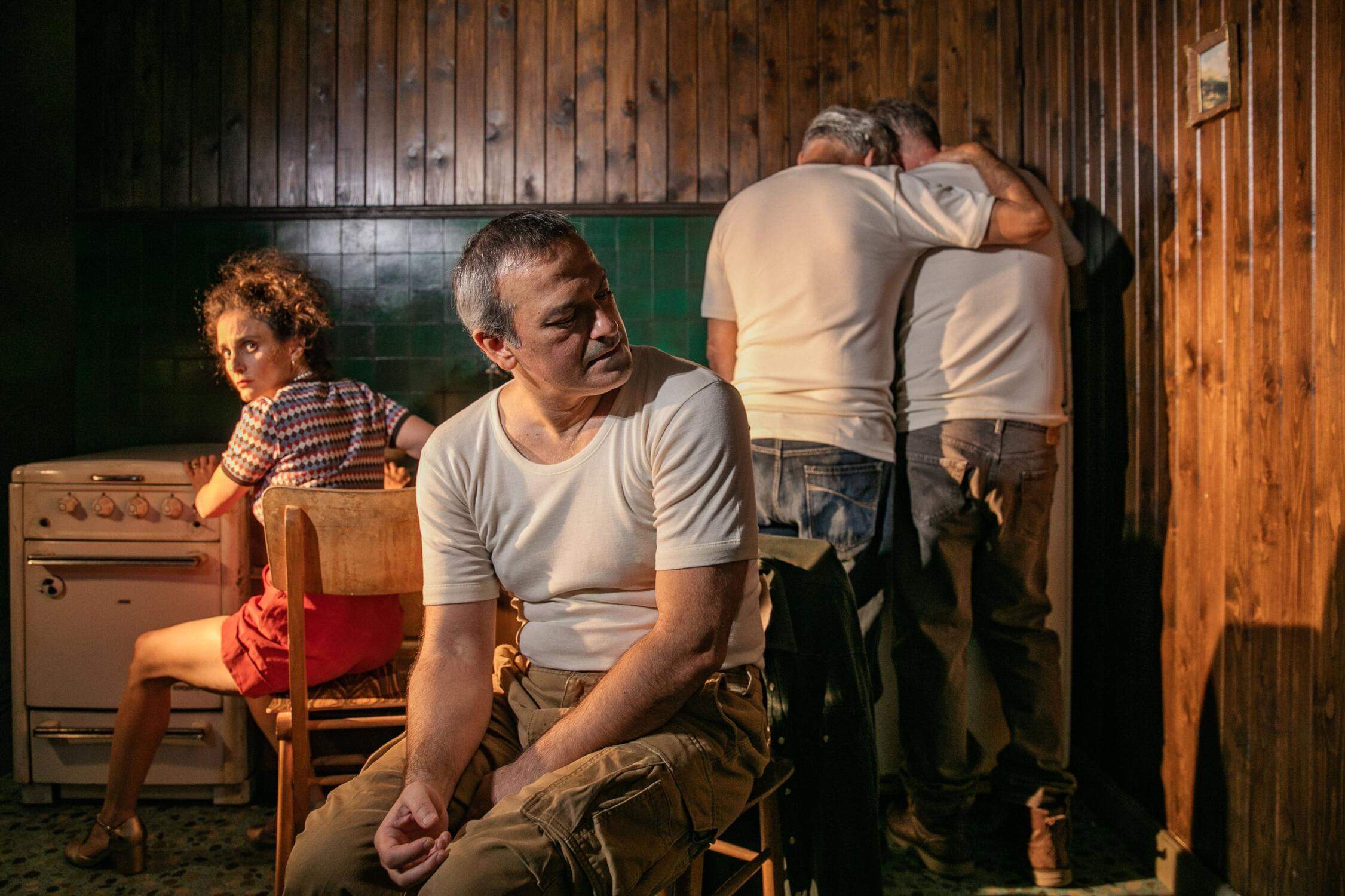A play in recognition of the 100 years that had passed since the implementation of the 1913 Land Act, Milk & Honey told the story of a young and successful man who had lost his way, leaving ancestry and spirituality behind, and with no rootedness to the land in which he was born. In Milk & Honey Revisited, extracts of this original tale are unearthed and expanded upon, in particular the closing solo originally performed by Motlhapi, now reworked as a duet through the collaborative inputs of Billy Langa.
Milk & Honey Revisited is a play that comes to life through its use of song and dance – Tswana traditional dance merges with contemporary interpretative movement and striking duets – but it also prizes language. The writing is rich and immersive, while the shifting narrative point of view held by Alfred Motlhapi and Langa lends the play a distinctly folktale-like quality.
Equal parts conceptual and experimental, Milk & Honey Revisited frequently breaks away from its own structure in order to analyze the various scenes and components that comprise it – “It’s a lovely scene! Land, gender, it’s all there!” they say to each other. Or, “It’s Dadaism, we are on the cutting edge, man! If you want theatre with a capital ‘T’ go to fukken Montecasino!” In this way, the revisiting of Milk & Honey happens in real-time as Motlhapi and Langa regularly break characters to analyze and unpack the scenes they’ve just performed.
Milk & Honey Revisited is a decidedly self-aware performance that embraces play and collaboration in order to both build upon and reconsider the original play. The choreography is key, too. At times it is slight, a tentative and delicate balance and twirl, dancing as if on a knife’s edge. Other times, it is deliberately absurd, channeling and challenging notions of futility and embodied history. Finally, there is the dance with the sand – a vital scene. It is a dance that gestures towards or yearns for rootedness in the land, in one’s own identity, full of twisting, turning, and falling, working all the while to seek out a place in the world.
– David Mann
LEARN MORE ABOUT THE COMPANY:
Also watch the panel: Sustainability of Life Theatre on the African Continent
This panel reflects on theatre audiences in our spaces and how we can sustain live theatre. Panelists tackle topics like how different theatre producers/artists define their audience, how we market shows (pre and post-pandemic), and how to interest people and invite them to the theatre and keep them coming back. The panel then collectively explores how to grow theatre audiences. The event was presented in partnership with TheAfricanTheatreMagazine.com.
Hosted by Aidah Nalubowa, Founder & Content Manager of TheAfricanTheatreMagazine.com & Alex Nderitu, writer, poet, playwright, and theatre critic, Regional Managing Editor at TheTheatreTimes.com.
Panelists:
Rosette Nteyafas, Creative Producer, Line Producer of Kampala International Theater Festival and Tebere Arts Foundation, Uganda
Makhaola Ndebele, Actor, Independent Theatre Director, and Creative Consultant, South Africa
Lloyd Nyikadzino, Founder and director of the Zimbabwe Theatre Academy and Mitambo International Theatre Festival, Zimbabwe
This post was written by the author in their personal capacity.The opinions expressed in this article are the author’s own and do not reflect the view of The Theatre Times, their staff or collaborators.
This post was written by Written and Directed by Khayelihle Dom Gumede, The Centre for the Less Good Idea (2021), South Africa.
The views expressed here belong to the author and do not necessarily reflect our views and opinions.

